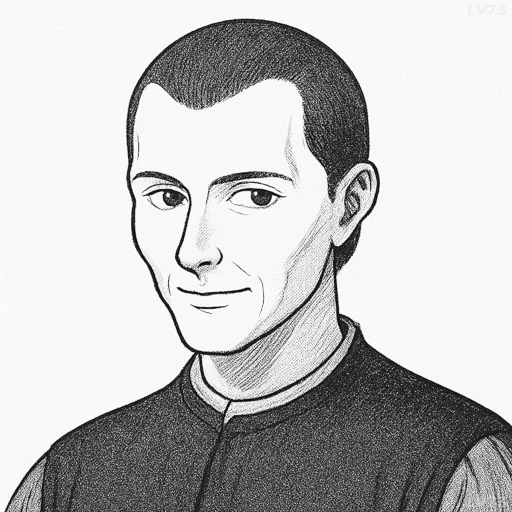“Hence it comes about that all armed Prophets have been victorious, and all unarmed Prophets have been destroyed.”

- May 3, 1469 – June 21, 1527
- Born in the Republic of Florence (Italy)
- Political thinker and diplomat
table of contents
Quote
“Hence it comes about that all armed Prophets have been victorious, and all unarmed Prophets have been destroyed.”
Explanation
In this statement, Niccolò Machiavelli draws a sharp distinction between armed and unarmed prophets to emphasize the necessity of military strength for successful leadership, particularly when attempting to establish a new order. Here, “prophets” refers not just to religious figures, but to leaders or revolutionaries who attempt to bring about change. Machiavelli suggests that those who combine prophetic vision with military power are able to impose their will and succeed, while those who lack the means to enforce their ideas are doomed to failure. This idea is consistent with Machiavelli’s broader philosophy that political stability and power often require a combination of wisdom and force.
Machiavelli is referring to historical figures who, despite having grand visions or revolutionary ideas, were ultimately defeated or destroyed because they lacked the ability to defend themselves or their cause. For example, leaders like Moses, who led the Israelites with both divine authority and military support, or Muhammad, who combined spiritual leadership with the power of an army, are examples of “armed prophets” who succeeded. On the contrary, unarmed prophets—such as those who rely purely on ideals, without practical means of enforcing them—often face opposition that they cannot overcome, resulting in their destruction.
In modern contexts, this quote can be applied to any leader or revolutionary figure who aims to change the political or social landscape but lacks the power or military backing to enforce those changes. For instance, the Arab Spring leaders, who sought political reforms through peaceful means, were often overthrown or sidelined by more powerful military regimes or foreign interventions. Similarly, revolutionaries like Gandhi or Martin Luther King Jr., who achieved monumental change through nonviolence, still needed widespread social support and the moral authority to maintain their momentum against entrenched powers. In contrast, those who rely on a combination of ideological fervor and military force—such as Che Guevara or even Napoleon Bonaparte—have historically had more success in achieving and maintaining power.
Would you like to share your impressions or related stories about this quote in the comments section?



